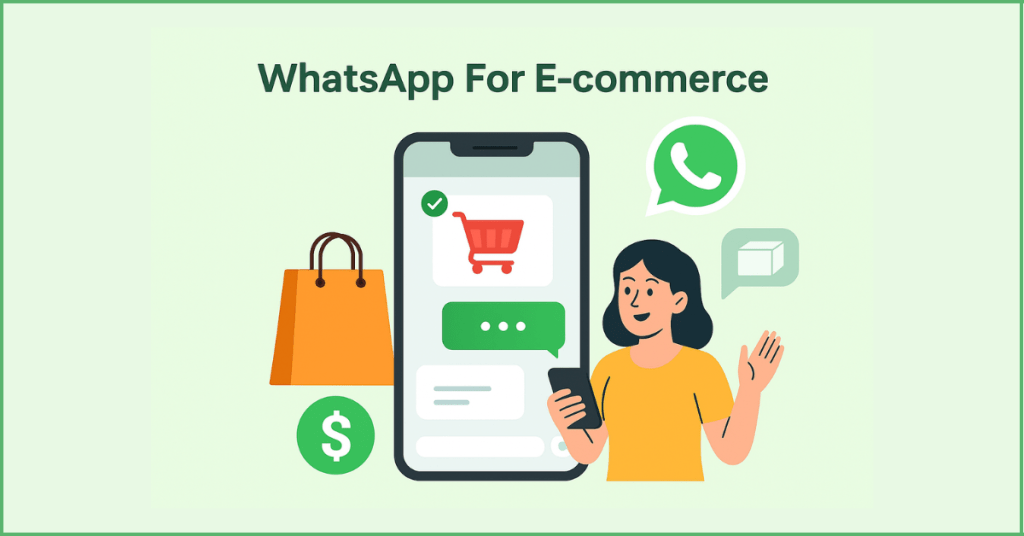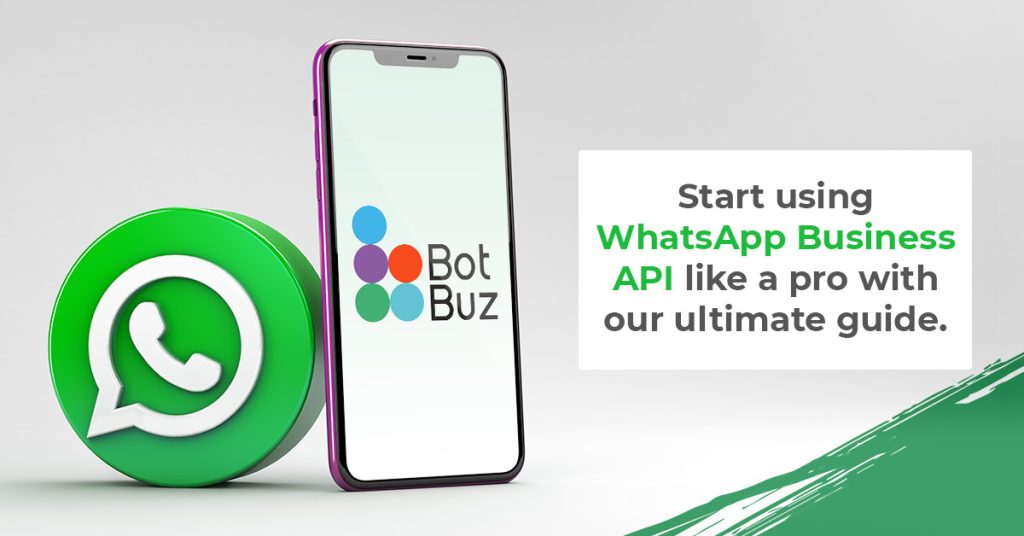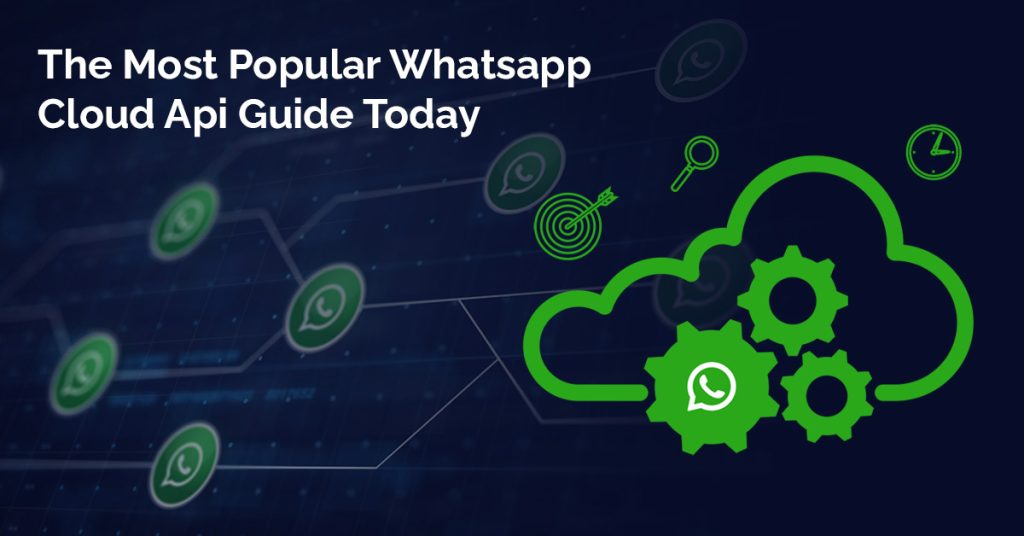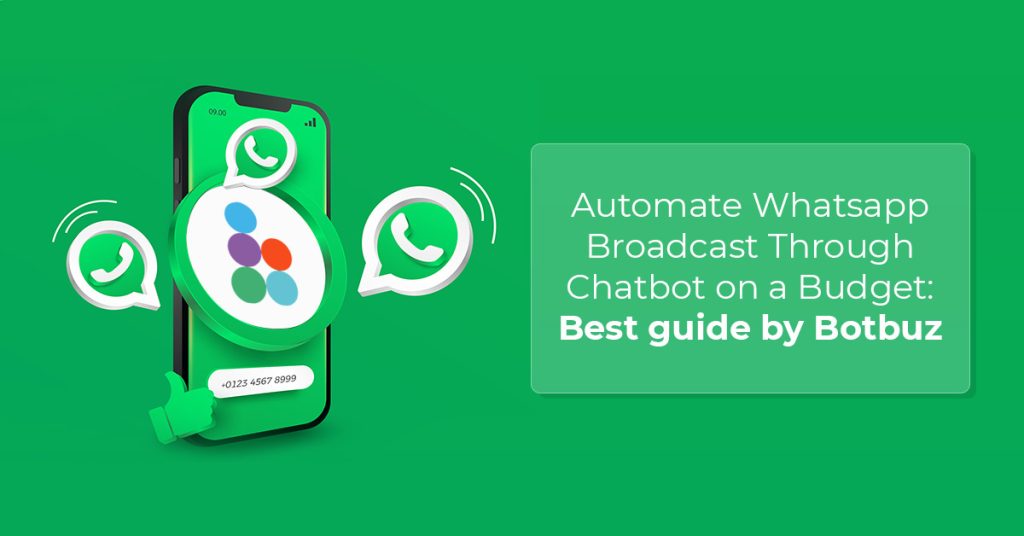WhatsApp the Most Powerful Channel for E-commerce Businesses :
Conversational commerce uses messaging apps like WhatsApp. It creates a two-way dialogue between businesses and customers, making shopping more interactive. WhatsApp is highly effective for this because of its large user base, high message open rates & features. It allows for direct, personalized, and automated customer engagement. Businesses can leverage this by setting up a professional profile. It uses product catalogs, running targeted ads, and providing real-time support.
Problems Every E-Commerce Business Faces :
E-commerce businesses frequently encounter a set of common challenges. It significantly impacts their revenue and growth. According to the document, these “prickling problems” include four key issues.
First, abandoned carts are a major headache. This occurs when a shopper adds items to their online cart but leaves the website before completing the purchase. This represents a direct loss of potential sales. It is a clear indicator of friction in the checkout process.
Second, many businesses face the problem of low repeat purchases. This means customers are buying only once and not returning, leading to a low re-order rate. A lack of repeat business can stifle long-term growth. It makes a company overly reliant on acquiring new customers, which is more expensive.
Third, a significant issue is when users deny Cash on Delivery (COD) orders. This leads to a direct loss of revenue. When a customer refuses to accept a COD order at the time of delivery, the business not only loses the sale but also incurs the cost of shipping and reverse logistics.
Finally, the document points to the problem of users who click on ads but do not convert into sales. This indicates a poor ad-to-sale conversion ratio. A high number of ad clicks without corresponding sales suggests that the marketing efforts are attracting traffic but failing to persuade users to make a purchase. This is due to a weak landing page, unclear product information, or a cumbersome checkout process.
Why Use WhatsApp for E-Commerce?
A company would choose to use WhatsApp for e-commerce. It is because of shifting customer preferences. Today’s consumers increasingly prefer to communicate with businesses through messaging apps rather than traditional methods like email or phone calls, seeking quick and convenient interactions.
A key benefit of using WhatsApp is its high level of engagement. Messages sent through the platform have a very high open rate. It is often over 90%, which is significantly higher than other marketing channels. This ensures that a business’s communication, whether it’s a promotional offer or an order update, is almost guaranteed to be seen by the customer.
Lastly, WhatsApp allows for direct and personal communication with customers. This capability is crucial because it helps businesses build strong relationships. By engaging in one-on-one conversations, a company can provide personalized product recommendations and answer specific questions. It can ultimately increase trust and customer loyalty.
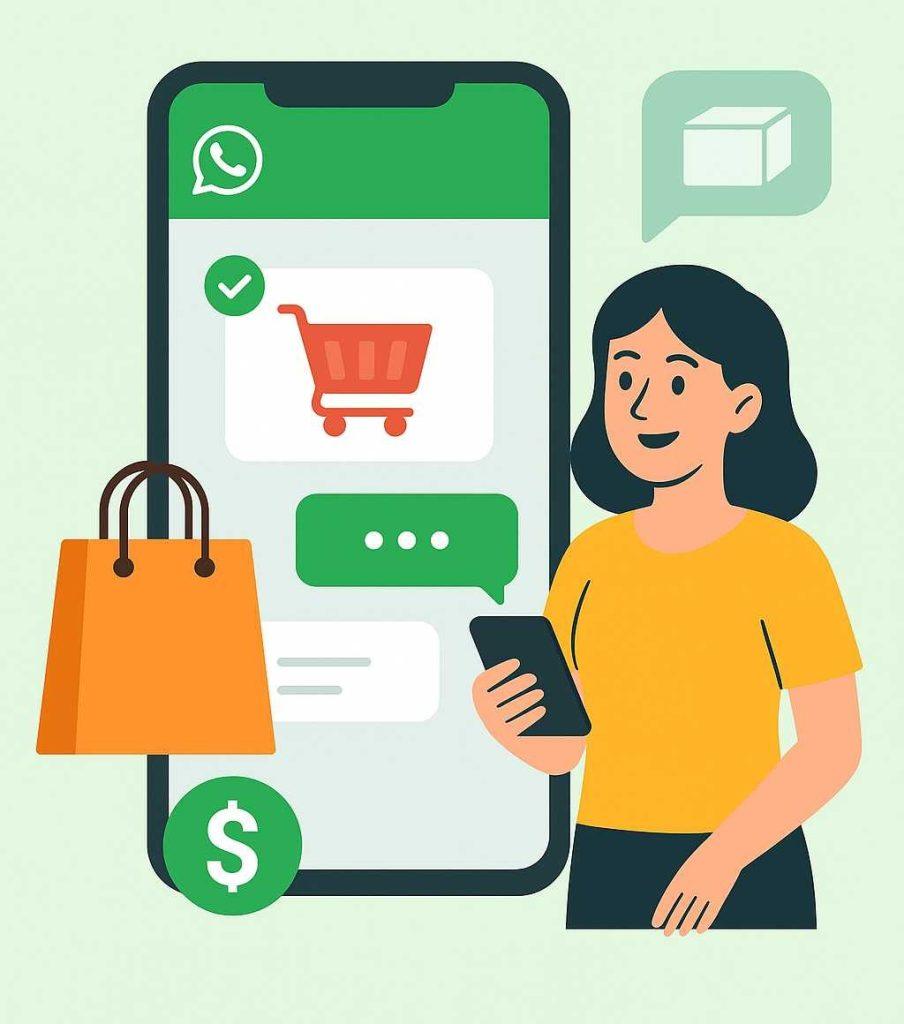
Strategies for WhatsApp E-Commerce :
- Getting Started – To begin, a business must register for either WhatsApp Business (for small businesses) or the WhatsApp Business API (for larger operations). Then, they should create a professional business profile with their logo, contact details & a clear description. To keep their contacts organized, they can use labels & segments to categorize customers.
- Automation & Support – Automation is key for providing 24/7 support. Businesses can integrate a chatbot like Botbuz to handle common inquiries. They can also set up automated greetings and away messages to manage expectations. Building and sharing a product catalog within WhatsApp allows customers to browse and order directly. Quick replies and message templates help streamline common responses. It enables two-step verification and adds a layer of trust.
- Payments & Conversions – To drive sales, businesses can integrate payment buttons (like UPI or payment links) directly into chats. They should link WhatsApp to their website and social media to guide traffic there and run Click-to-WhatsApp ads on platforms like Facebook and Instagram. Strategies like offering a lead magnet (e-books, discounts) via chat can capture new contacts. Businesses can also use broadcasts to announce new arrivals and blog updates. It helps to collect email/SMS in chats to expand their omnichannel reach.
- Engagement & Experience – For a more engaging experience, businesses can create interactive product quizzes and personalized welcome sequences. They can use WhatsApp Stories for sneak peeks. Also it hosts chat-based webinars, and run user-generated content campaigns. A great way to boost sales is by setting up referral programs with chat reminders.
- Advanced Targeting & Retention – To retain customers, businesses can retarget specific audiences. It is through WhatsApp broadcasts and sends personalized product recommendations. Timed follow-up sequences and the use of multimedia (images, videos) can keep customers engaged. Segmentation based on purchase intent and history allows for tailored messages. Businesses can use chats to run surveys and polls. Other strategies include upsell/cross-sell prompts. It offers deals to VIP lists, and sends geo-targeted offers and back-in-stock alerts.
- Post-Purchase & Retention – After a purchase, communication is crucial. Businesses can send automated order confirmations and real-time inventory notifications. Abandoned cart reminders and payment reminders can recover lost sales. For COD orders, businesses can confirm and convert them via WhatsApp. They can also provide a live agent handoff for high-value orders. It uses AI-driven pricing, and sends WhatsApp carousels for a rich product experience.
Other strategies include personalized thank-you messages, providing chat-based installation guides, automated subscription renewals, reorder reminders, and offering loyalty rewards. They can also send birthday greetings with special offers, request reviews, and build a WhatsApp community group.
Setting Up WhatsApp for Online Store :
A business can get started with WhatsApp for e-commerce by first choosing the right tool. They have two main options: the WhatsApp Business App for smaller companies or the more advanced WhatsApp Business API for larger businesses that need more features and can handle a high volume of messages.
After choosing their platform, a company must create a professional profile. This involves providing all the necessary information. It can be a business name, logo, address, and links to their website. A complete profile helps build customer trust and provides essential information upfront.
Finally, to make the shopping experience smoother, the business should add a product catalog to their profile. This feature allows customers to browse products directly within WhatsApp. The company should also set up quick replies, which are pre-written messages. It can be used to answer common questions instantly, saving time & making communication more efficient.
Tips for Maximizing Success with WhatsApp E-Commerce :
Prioritize Customer Trust and Privacy
A successful business must always obtain explicit customer consent (opt-in) before initiating any conversation. The company must avoid sending unsolicited & spammy messages. It should promptly honor all customer opt-out requests. This focus on clear communication and compliance builds a foundation of trust.
Enhance Experience with Rich Media
To make shopping engaging, the business should fully utilize WhatsApp’s media features. This includes showcasing products with high-quality images and videos. It helps in maintaining a comprehensive product catalog directly within their profile. Rich media streamlines product discovery and enhances the overall customer journey.
Balance Automation and Human Touch
The optimal strategy combines speed with personalization. Automation, typically through a chatbot, is used to handle common questions. It sends instant acknowledgments, and manages critical alerts (like abandoned cart reminders). Complex issues or sensitive requests must be immediately escalated to a live human agent. It ensures that the customer receives both rapid service and empathetic support.
Using Botbuz WhatsApp Chatbot for E-Commerce Growth :
A company can use a Botbuz WhatsApp Chatbot to enhance its e-commerce growth. It is by automating key customer interactions.
The chatbot can automate personalized interactions with customers. It handles common questions and guides shoppers through the sales process. It even offers customized product suggestions. This automation provides a more engaging experience for the customer. It is without the need for constant human oversight.
Botbuz platform is designed to manage conversations across several platforms. It includes WhatsApp, Instagram, and Facebook. This capability allows businesses to offer a consistent experience for their customers, no matter which channel they use to communicate.
The AI-powered chatbot significantly reduces response times. It provides instant, round-the-clock support, which is crucial for customer satisfaction. Thus, helping prevent potential sales from being lost due to slow replies.
Finally, the chatbot helps to increase repeat business through proactive communication. It can send automated messages for things like abandoned cart reminders or notifications about new products. Thus, encouraging customers to return to the store and make additional purchases.
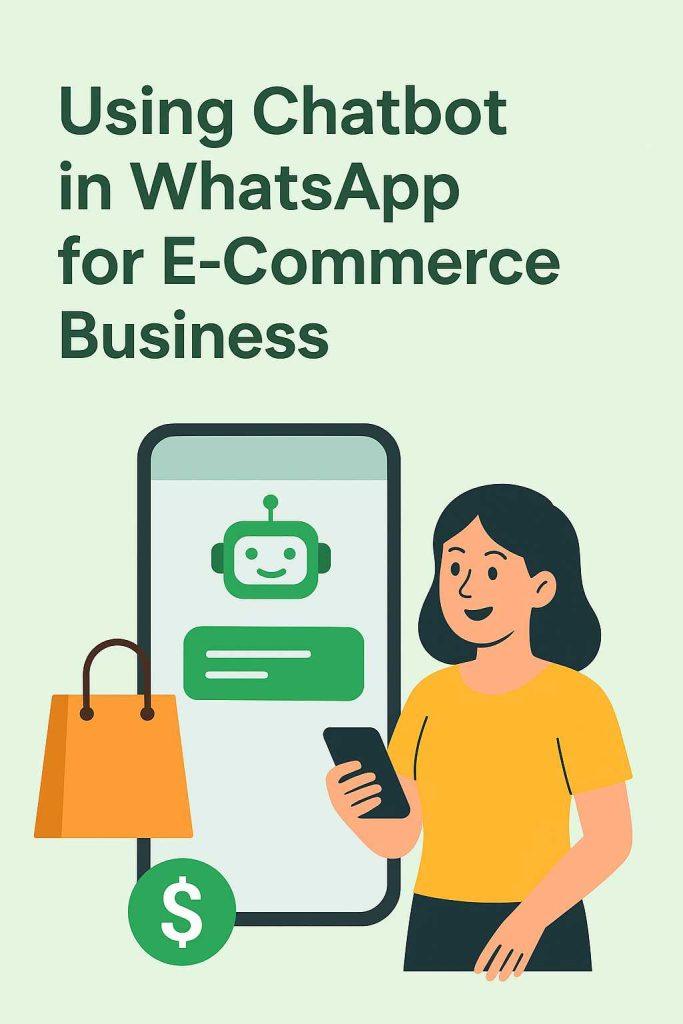
Conclusion :
The successful expansion of an online store through WhatsApp e-commerce rests on two critical pillars: a meticulous foundational strategy and the power of intelligent automation. The business must first establish credibility by setting up a detailed, professional WhatsApp profile. It should maintain an up-to-date product catalog to facilitate direct, in-app shopping. This framework ensures customer trust and convenience.
Growing an online store using WhatsApp requires a dual strategy. First a professional setup (profile and product catalog) & second the powerful automation. The Botbuz Chatbot is crucial for scaling. It handles routine queries & provides 24/7 support. It even delivers personalized product recommendations across channels. This automation is key to improving response times, recovering abandoned carts, and driving repeat purchases. Thus, making the combination of strategy and AI essential for e-commerce growth.
